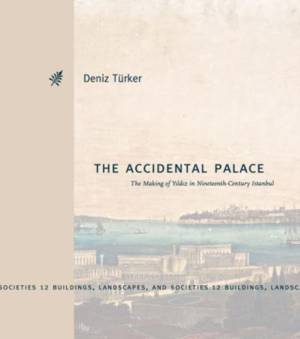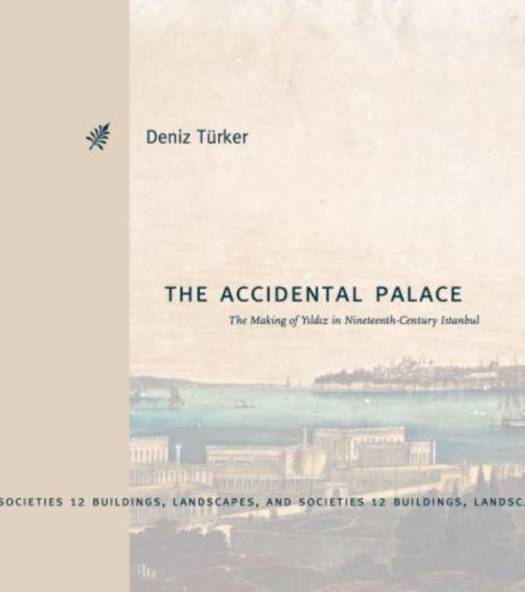
- Afhalen na 1 uur in een winkel met voorraad
- Gratis thuislevering in België
- Ruim aanbod met 7 miljoen producten
- Afhalen na 1 uur in een winkel met voorraad
- Gratis thuislevering in België
- Ruim aanbod met 7 miljoen producten
Omschrijving
This book tells the story of Yıldız Palace in Istanbul, the last and largest imperial residential complex of the Ottoman Empire. Today, the palace is physically fragmented and has been all but erased from Istanbul's urban memory. At its peak, however, Yıldız was a global city in miniature and the center of the empire's vast bureaucratic apparatus.
Following a chronological arc from 1795 to 1909, The Accidental Palace shows how the site developed from a rural estate of the queen mothers into the heart of Ottoman government. Nominally, the palace may have belonged to the rarefied realm of the Ottoman elite, but as Deniz Türker reveals, the development of the site was profoundly connected to Istanbul's urban history and to changing conceptions of empire, absolutism, diplomacy, reform, and the public. Türker explores these connections, framing Yıldız Palace and its grounds not only as a hermetic expression of imperial identity but also as a product of an increasingly globalized consumer culture, defined by access to a vast number of goods and services across geographical boundaries.
Drawn from archival research conducted in Yıldız's imperial library, The Accidental Palace provides important insights into a decisive moment in the palace's architectural and landscape history and demonstrates how Yıldız was inextricably tied to ideas of sovereignty, visibility, taste, and self-fashioning. It will appeal to specialists in the art, architecture, politics, and culture of nineteenth-century Turkey and the Ottoman Empire.
Specificaties
Betrokkenen
- Auteur(s):
- Uitgeverij:
Inhoud
- Aantal bladzijden:
- 272
- Taal:
- Engels
- Reeks:
Eigenschappen
- Productcode (EAN):
- 9780271093918
- Verschijningsdatum:
- 23/05/2023
- Uitvoering:
- Hardcover
- Formaat:
- Genaaid
- Afmetingen:
- 234 mm x 260 mm
- Gewicht:
- 1378 g

Alleen bij Standaard Boekhandel
Beoordelingen
We publiceren alleen reviews die voldoen aan de voorwaarden voor reviews. Bekijk onze voorwaarden voor reviews.












